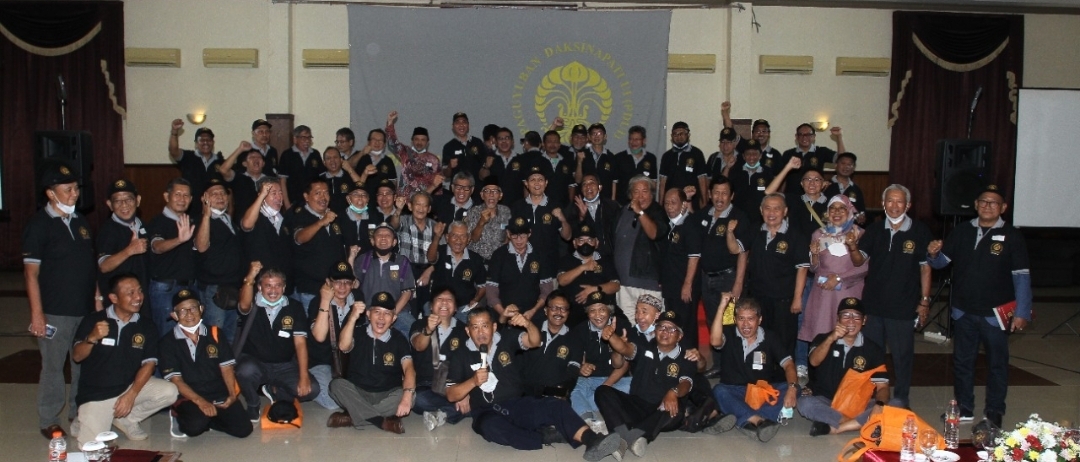Prof. Feri Yusivar, M.Eng., Professor of Electric Drives and Motor Control, Faculty of Engineering (FT) Universitas Indonesia (UI), revealed that the Indonesian Government is committed to achieving Net Zero Emissions by 2060 as part of the global energy transition. The government has prepared an Energy Transition Roadmap which includes projected growth of electric vehicles at the end of each decade towards 2060. However, the Indonesian Electric Vehicle Roadmap is considered still conservative because it does not include new technological variables that will emerge in the future.
The results of a systematic study from Prof. Feri and the research team show that Indonesia has the potential to adopt up to 100 million electric vehicles by 2060, 30 percent above government projections. The high adoption rate of electric cars in Indonesia is driven by five main factors, namely the presence of Artificial Intelligence (AI) technology, reliable infrastructure, policy changes, changes in the views of the younger generation, and Indonesia’s geographical landscape where electricity has entered earlier than fuel oil ( fuel).
“The condition and potential of the electric vehicle market in Indonesia is currently showing significant growth. Sales of electric cars in Indonesia in the first semester of 2023 recorded a very significant increase. The number of units sold reached 23,260 units. This is a very dramatic increase compared to the same period in the previous year, namely 2022, where sales only reached 3,535 units. This increase of 557.99 percent reflects a major change in the Indonesian market’s acceptance of electric vehicles,” said Prof. Feri.

He conveyed this in his inauguration speech as Professor in the Field of Electric Drives and Motor Control, Electrical Engineering, FTUI. The inauguration procession was led by the Rector of UI, Prof. Ari Kuncoro, S.E., M.A., Ph.D. at the Convention Center, UI Campus, Depok, on Wednesday (29/11). At that time, he delivered a scientific oration entitled “Opportunities and Challenges for Technological Independence of Electric Vehicle Propulsion Systems in Indonesia”.
He said electric vehicles are supported by integrated main components, including traction batteries, inverters, controllers, and traction motors and chargers. According to Prof. Feri, the propulsion system in electric vehicles is a key component in the transition to cleaner transportation. This system involves electric traction motors and power electronics which play a vital role in advanced vehicle propulsion systems. Drive systems in electric vehicles can increase vehicle efficiency and power density, as well as ensure economical and market-viable vehicle solutions.
In essence, controlling a motor or electric machine is controlling the motor’s torque and flux by controlling the motor’s electric current. Initially, controlling the torque and flux of a motor by controlling three-phase alternating electric current was very difficult. However, with the discovery of the concept of transforming 3-phase current components into 2-phase in a rotating reference axis, controlling torque and motor flux through motor current which is transformed into 2-phase current became possible.
This method involves mapping the 3-phase motor current into reference axes, in this case the d-axis and q-axis. By controlling the d-axis current, we indirectly control the motor flux. Meanwhile, controlling the q-axis current indirectly allows controlling the motor torque. This method of controlling motor flux and motor torque separately is called vector control.
Prof. Feri emphasized that independence in electric vehicle traction system technology is considered to have important benefits for the future of the automotive industry. This is especially true in facing the challenges of climate change and air pollution. Electric vehicles offer improvements in safety, control and energy efficiency compared to fossil fuel powered vehicles.
Before conducting a study on electric vehicle drive system technology, Prof. Feri has conducted a lot of similar research. Some of them are Improved Current and MTPA Control Characteristics Using FEM-Based Inductance Maps for Vector-Controlled IPM Motor (2023); Autonomous Human and Animal Classification Using Synthetic 2D Tensor Data Based on Dual-Receiver mmWave Radar System (2023); and System modeling of gear-shifting on automated manual transmission system based on integrated control of induction motor (2021).
Prof. Dr. Ir. Feri Yusivar, M.Eng. completed a BA in Electrical Engineering at the Universitas Indonesia in 1992; completed the Master’s Program in Electric Drives and Motor Control at Waseda University, Japan in 2000; and obtained a Doctorate degree in Electric Drives and Motor Control at Waseda University, Japan in 2003. In 2021, Prof. Feri received the Satya Lancana Dharma Makara Medal of Honor for 25 years of service from FTUI. Currently, he serves as Director of the Research Center for Advanced Vehicles (RCAVe) FTUI.
The inauguration procession of professor Prof. The ferry was also attended by the Professor of the Sepuluh Nopember Institute of Technology, Prof.Dr.Ir. Mauridhi Hery Purnomo, M.Eng.; Principal Expert Researcher at the National Research and Innovation Agency and Research Professor at the Indonesian Computer University, Prof. Dr.-Eng. Estiko Rijanto, M.Eng.; Professor at Jendral Soedirman University, Prof. Dr. Eng. Ir. Suroso ST, M.Eng.; Directorate of Research Facilitation at the Education Fund Management Institute, Wisnu Sardjono; Director of PT Mobil Anak Bangsa, Bambang Tri Supandji; and Director of PT. NSAD, Nur Hidayat.
Author: Dyra Daniera



